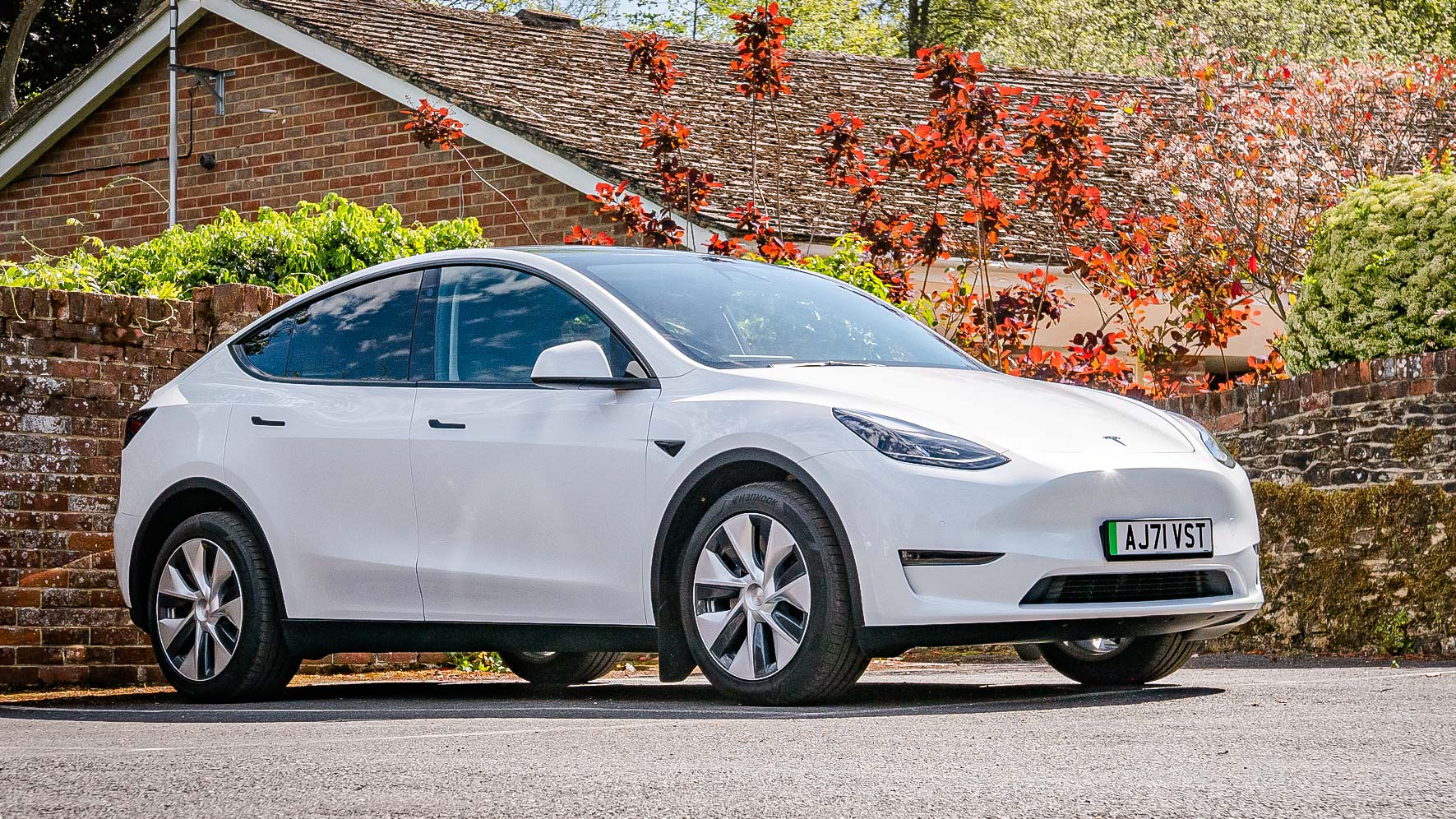New study could make you want to skip buying a Tesla
A new electric vehicle quality report doesn't paint a good picture for Tesla

Teslas are some of the most best electric cars around, which makes sense, considering the fact the cars have long range, Supercharger access, Autopilot and that luxury feel about them. But a new report from J.D. Power, concerning vehicle quality, may make you pause for thought.
J.D. Power just posted its Initial Quality Study for 2020 model-year cars, and it’s not good news. According to the findings, supply chain issues have caused a decline in vehicle quality across the board — with an 11% drop year over year. That’s the steepest drop ever recorded by the group, and the likes of Tesla and Polestar are right near the bottom.
The survey is based on input from 84,165 verified drivers, who either owned or leased the cars between November 2021 and February 2022. Responses account for 33 different brands and 189 different individual vehicles.
According to those findings, there were 226 problems for every 100 Tesla vehicles — meaning the cars rank seventh from bottom. Not a great look for a company that already has something of a reputation for poor manufacturing and quality control, especially with random price increases happening over the past year or so.
Meanwhile, Polestar ranked dead last with 328 problems per 100 cars, and non-Tesla EVs averaged 240 problems per 100 cars. Top of the list were Buick (139), Dodge (143), Chevrolet (147) Genesis and Kia (both 156). The industry average is 180 problems per 100 cars.
The biggest problems facing modern car-owners is the software, rather than the physical cars themselves. Six out of the 10 biggest issues involved infotainment, with Android Auto and Apple CarPlay getting 5.8 complaints per 100 cars (up from 4.9) and proving to be some of the worst offenders.
Other related issues include voice recognition problems (4 complaints per 100 cars), difficulty using touchscreens and displays (3.5), Bluetooth (3.4), lack of USB ports and power sockets (2.9) and inconsistent audio volume (2.7). Advanced driver assistance issues have increased, after a decline in 2021, with lane departure warnings and lane-keep assistance features proving to be the most problematic — with 4.1 complaints per 100 cars.
Sign up to get the BEST of Tom's Guide direct to your inbox.
Get instant access to breaking news, the hottest reviews, great deals and helpful tips.
Interestingly, J.D. Power noted that premium vehicles tend to experience more problems than more mass market models — with the former clocking in at an average of 196 complaints per 100 cars compared to 175. It’s suggested that this is down to the fact premium cars include more hi-tech features, which increases the chances of things going wrong.
This trend may also explain why EVs have such a high average score. A lot of electric vehicles are at the more premium end of the pricing spectrum, and even the cheaper models tend to have more hi-tech options.
The report notes that automakers are struggling to get a handle on the ongoing supply chain issues, particularly where microchips are concerned. That's led to some automakers delivering cars without some features installed, which will have an impact on customer satisfaction. Especially if they're not expecting things to be missing.
Supply chain issues has also led to numerous delays on multiple vehicles. The Tesla Cybertruck was pushed back from a late 2021 launch to early 2023, and the Nissan Ariya arrived over a year behind schedule.
So, as tempting as it may be, now might not be the right time to pick up a new electric car — Tesla or otherwise. Though given the fact supply chain issues are still ongoing, and some Tesla wait times are well over a year, you might not have much choice in the matter either way.
Read next: Tesla could relaunch its referral program, with these rewards up for grabs. You can also check out our guide to the 7 things you need to know before you buy an electric car.

Tom is the Tom's Guide's UK Phones Editor, tackling the latest smartphone news and vocally expressing his opinions about upcoming features or changes. It's long way from his days as editor of Gizmodo UK, when pretty much everything was on the table. He’s usually found trying to squeeze another giant Lego set onto the shelf, draining very large cups of coffee, or complaining about how terrible his Smart TV is.
-
Haggemano This is just plain silly. There's an average of 0.44 more problems per vehicle compared to average so you think people should rethink their purchase? Even though on average it means no extra problems?Reply
If you have 2.5 problems with a new car and Tesla sends someone to your house to fix them, that's far less of an issue than having to take a competing car to a dealership for even one problem. That's why Tesla blows away the competition in customer satisfaction.
When you consider that the competition needs two oil changes per year, I don't think that the level of problems with a Tesla amounts to much. -
Adriaaaaan JDPower rankings is a paid for ranking system you have to be a paid member in order to get an appropriate score. Tesla doesn't pay them so they don't get a good score. Nothing to see hereReply -
AzMark How about we talk about the real takeaways from this report? 1. All EVs have more initial quality complaints than legacy ICE cars. 2. Many EV car "issues" are related to perceived missing software functionality, and 3. Teslas have lower rate of complaints than other EVs. Also, what do you think how the "quality" of horses vs Model Ts compared? Good old Bessy never ran out of gas or range.Reply -
Haggemano ReplyAzMark said:How about we talk about the real takeaways from this report? 1. All EVs have more initial quality complaints than legacy ICE cars. 2. Many EV car "issues" are related to perceived missing software functionality, and 3. Teslas have lower rate of complaints than other EVs. Also, what do you think how the "quality" of horses vs Model Ts compared? Good old Bessy never ran out of gas or range.
Actually, horses ran out of both, conceptually speaking, and needed food and rest. They also had emissions problems to deal with. The difference is nobody saw it as a defect.
Likewise, cars from decades ago were judged by reliability, with a reliable car being one that didn't break down very often, and didn't stall out while waiting at traffic lights for a good 3000 miles before needing a tuneup.
These days, reliability scores have nothing to do with whether you can rely on the car, because only a tiny fraction of the complaints are about something that made the car undrivable.
